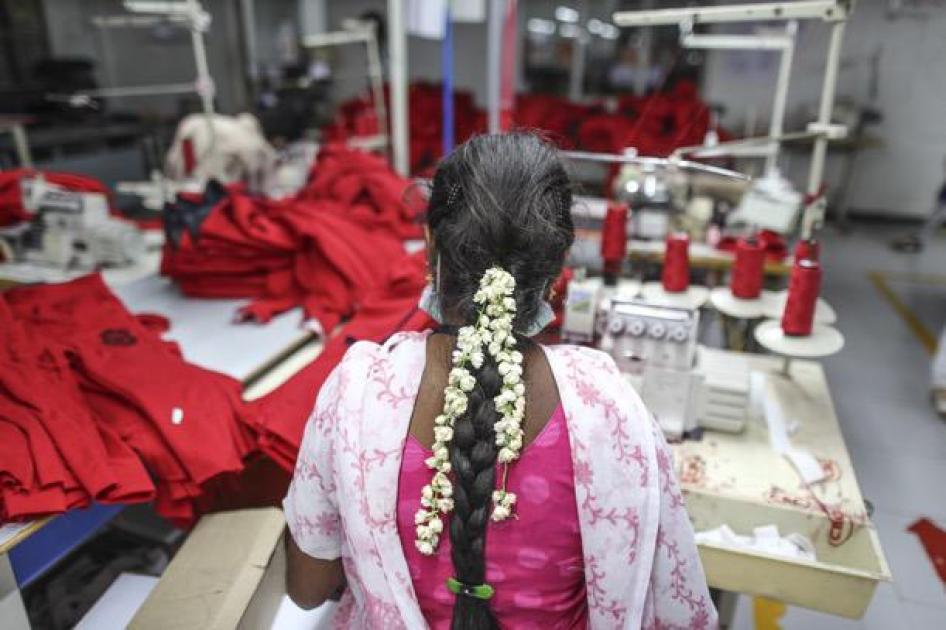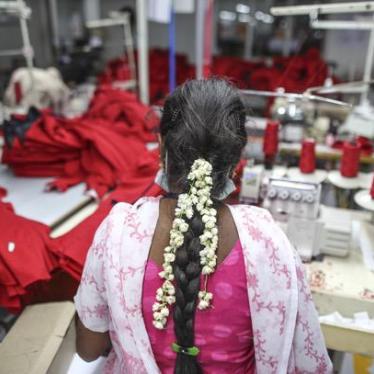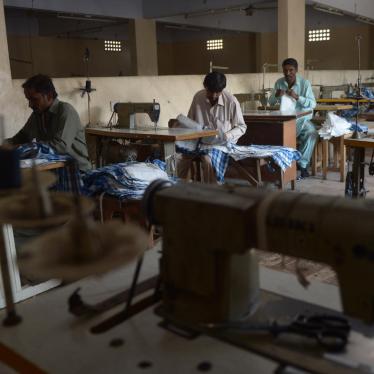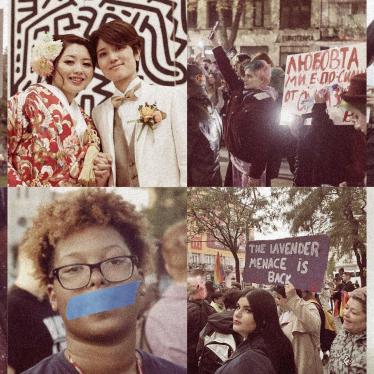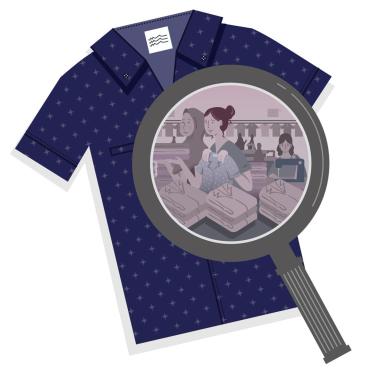Will the fashion industry throw its weight behind the global #MeToo movement? The next few months will tell us how committed apparel companies are to fighting harassment and discrimination in their supply chains.
Starting February 13, more than 400 representatives from governments, the apparel industry, unions, and civil society will attend the Organization for Economic Co-operation and Development (OECD) Forum on Due Diligence in the Garment and Footwear Sector. The US$2.4-trillion apparel industry employs millions of workers globally, mostly women. Women workers experience specific challenges at workbecause of gender, including pregnancy-based discrimination and sexual harassment.
In a new report, Human Rights Watch calls on global apparel companies to show leadership in confronting these issues by publicly supporting the call for a new binding International Labour Organization (ILO) Convention on violence and harassment at work. There is a desperate need for a binding convention because 59 countries do not even have any specific legal remedies against sexual harassment at work. Even where legal remedies exist, they are often poorly enforced – like in India and Pakistan.
Our report also highlights the flaws of relying on social audits – one of the primary tools apparel brands use to monitor conditions in factories across global supply chains – to check gender-based violence or harassment at work.
Human Rights Watch looked at 50 social audit reports issued by big auditing firms, of factories primarily from Bangladesh, India, and Pakistan. We found that social audits (based on document reviews and on-site interviews) are not designed to elicit information about gender-based violence or harassment at work. They are not designed to overcome the specific barriers to reporting such harassment. They do not sufficiently create a safe space for workers who experience such harassment or guarantee anti-retaliation. Apparel companies that use social audits should know their limitations, and shouldn’t pretend they are the right tool for this job.
The global forum in Paris affords a unique opportunity for companies to reflect on these concerns and resolve to help lead the charge on the important new ILO initiative.

